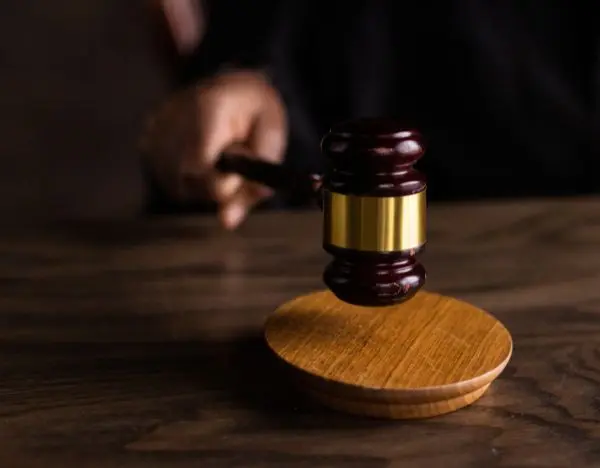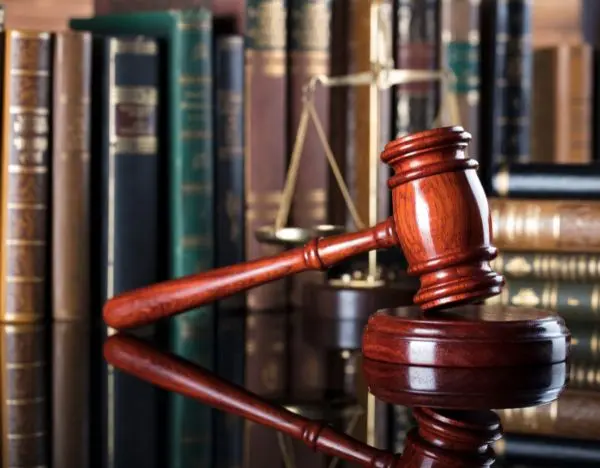Can Charges Be Dropped After Indictment?

Can Charges Be Dropped After Indictment?
Many individuals facing criminal charges wonder if charges can be dropped after an indictment. At Trbovich Law Firm in Buffalo, we understand this critical question and want to provide clear information about the process, possibilities, and factors involved when seeking to have charges dismissed post-indictment.
What is an Indictment?
An indictment is a formal written accusation issued by a grand jury charging someone with committing a serious crime (typically a felony). Before issuing an indictment, the grand jury reviews evidence presented by prosecutors and determines if there is "probable cause" to believe the accused person committed the crime. This differs from a regular criminal complaint or charge because it requires an additional step of review by the grand jury, which safeguards against unfounded prosecutions.
Consider an indictment as the official "green light" for a criminal case to proceed to trial. It outlines the specific charges and basic facts of the alleged crime, but it's important to understand that an indictment is not a finding of guilt - it simply means there's enough evidence to justify a trial. After an indictment, the accused person (now called the defendant) can enter a plea and defend themselves against the charges in court.
Can Charges Be Dropped After Indictment?
Yes, charges can be dropped after an indictment, though the process and circumstances can be complex. Here's a breakdown of how and why this can happen:
- Prosecutorial Discretion: Prosecutors can dismiss charges at any stage, including after indictment, if they determine the case isn't strong enough or new evidence emerges.
- Constitutional Violations: The case may be dismissed if law enforcement violated the defendant's constitutional rights during arrest, search, or interrogation.
- Insufficient Evidence: If key evidence is ruled inadmissible or witnesses become unavailable, prosecutors may drop charges due to lack of proof.
- Pre-Trial Negotiations: The defense and prosecution might reach an agreement, resulting in charges being dropped, often in exchange for cooperation or completion of specific programs.
- Technical Defects: If the indictment contains legal errors or procedural mistakes, it could lead to the dismissal of charges.
- New Evidence: The discovery of exculpatory evidence (evidence that proves innocence) can lead prosecutors to drop charges.
- Motion to Dismiss: Defense attorneys can file formal motions requesting charge dismissal based on legal grounds, procedural errors, or constitutional violations.
- Alternative Resolution: Completion of diversion programs, rehabilitation, or other alternative justice programs can result in charges being dropped.
In conclusion, while an indictment is a serious legal matter, multiple pathways exist for charges to be dropped, typically through legal challenges, negotiation, or the emergence of new evidence that weakens the prosecution's case.
Factors Influencing Whether Charges Can Be Dropped After Indictment

Several key factors influence whether charges can be dropped after an indictment. Understanding these factors is crucial for anyone navigating the criminal justice system.
- Strength of Evidence: The prosecution's ability to prove guilt beyond a reasonable doubt affects their willingness to proceed or drop charges, especially if key evidence becomes compromised or inadmissible.
- Constitutional Compliance: Any violations of a defendant's constitutional rights during arrest, search, or interrogation can lead to charge dismissal, particularly if evidence was obtained illegally.
- Witness Cooperation: The availability and reliability of witnesses significantly impact case viability, as witnesses who become unavailable or change their testimony may weaken the prosecution's case.
- Prosecutorial Resources: District attorneys must balance their office's resources and may choose to drop charges if they determine other cases deserve higher priority.
- Defendant's Background: Prior criminal history, community ties, and personal circumstances can influence prosecutors' willingness to consider alternative resolutions or dismissal.
- Quality of Defense: Strong legal representation that identifies procedural errors, constitutional violations, or presents compelling evidence can increase the likelihood of charges being dropped.
- New Evidence: The discovery of exculpatory evidence or information contradicting the prosecution's theory can lead to charge dismissal.
- Public Interest: Prosecutors may consider whether pursuing the case serves the public interest, especially in cases involving minor offenses or where rehabilitation seems more appropriate.
- Procedural Compliance: Proper adherence to legal procedures, including meeting filing deadlines and following proper protocols, can affect whether charges remain viable.
- Plea Negotiations: The defendant's willingness to cooperate, accept responsibility for lesser charges, or participate in alternative programs can influence charge dismissal decisions.
In conclusion, the decision to drop charges after indictment involves a complex interplay of legal, practical, and personal factors. Success often depends on effectively leveraging these factors through strategic legal representation and careful case management.
How a Criminal Defense Lawyer Can Help
A criminal defense lawyer plays a vital role in protecting your rights and navigating the complex criminal justice system. Here's how they can assist throughout your case:
- Case Evaluation: Thoroughly reviews the evidence, police reports, and circumstances of your arrest to identify strengths and weaknesses in the prosecution's case, helping develop an effective defense strategy.
- Rights Protection: Ensures law enforcement and prosecutors respect your constitutional rights throughout the process, challenging any violations that may have occurred during arrest, search, or interrogation.
- Evidence Analysis: Examines all evidence, interviews witnesses, and works with investigators to uncover facts that support your defense or challenge the prosecution's narrative.
- Motion Filing: Prepares and files crucial legal motions, including motions to suppress evidence, dismiss charges, or challenge procedural errors that could affect your case.
- Negotiation Skills: Engages in plea negotiations with prosecutors to potentially reduce charges, minimize penalties, or secure alternative sentencing options when appropriate.
- Court Representation: Presents your defense in court, cross-examines witnesses, challenges evidence, and argues legal points before the judge and jury.
- Sentencing Advocacy: If conviction occurs, advocates for the most favorable sentencing outcome by presenting mitigating factors and alternative sentencing options.
- Strategic Guidance: Provides informed advice about accepting plea deals versus going to trial, helping you make decisions based on the strength of evidence and potential outcomes.
- Administrative Support: Handles all court filings, deadline compliance, and communication with prosecutors and court officials, ensuring your case stays on track.
- Post-Conviction Options: Explains and pursues potential appeals or post-conviction remedies if available in your case.
In conclusion, a criminal defense lawyer serves as your advocate and guide through the justice system, working to protect your rights and achieve the best possible outcome for your case. Their knowledge of law, procedure, and strategy can make a significant difference in the resolution of criminal charges.
Take Action Today For Your Defense
Don't wait to protect your rights and future. At Trbovich Law Firm in Buffalo, we understand what's at stake. Contact us today for a confidential consultation and learn how we can help defend your case.
Indictment FAQs
How long does the indictment process typically take?
The grand jury typically reviews evidence and decides on an indictment within 60 to 90 days after arrest, though this can vary by jurisdiction and case complexity. Some cases may take longer if there's extensive evidence to review.
What happens if I refuse to appear before a grand jury?
Refusing to appear when subpoenaed by a grand jury can result in contempt of court charges, possibly leading to fines or jail time. However, you retain your Fifth Amendment right against self-incrimination when testifying.
Does an indictment always lead to a trial?
No, many indicted cases resolve without trial through plea agreements, dismissals, or alternative resolution programs. Every case follows its own path based on evidence, negotiations, and legal proceedings.
Can I know what evidence was presented to the grand jury?
Grand jury proceedings are typically secret, and defendants usually cannot access the specific evidence presented. However, your defense attorney will receive evidence through the discovery process after indictment.
Will my indictment become public record?
Yes, most indictments become public record once they're formally filed, though some may remain sealed temporarily if publicity could compromise an ongoing investigation or if the defendant hasn't been arrested yet.
Is there a difference between state and federal indictments?
Yes, federal indictments involve federal crimes and are prosecuted in federal courts with potentially harsher sentences. State indictments involve state law violations and are handled in state courts.
Can I travel while under indictment?
Travel restrictions vary by case. Some defendants may maintain freedom of movement within the state, while others face strict travel limitations. Always consult with your attorney and get court approval before traveling.
What's the difference between an indictment and an information?
An information is a formal criminal charge filed directly by prosecutors without grand jury involvement, while an indictment requires a grand jury's determination of probable cause.

